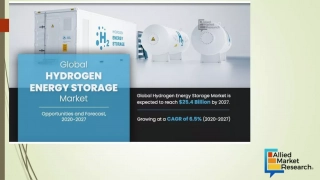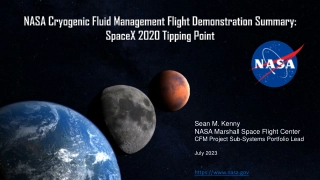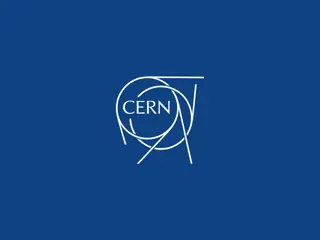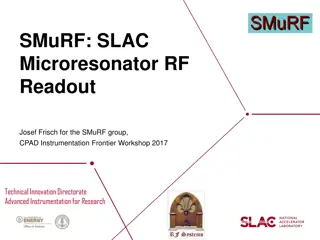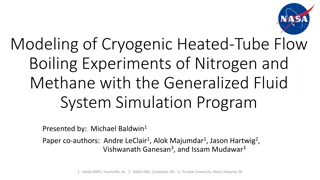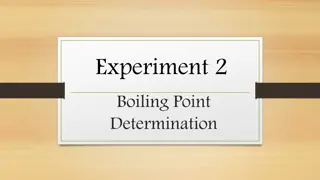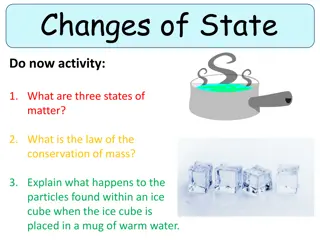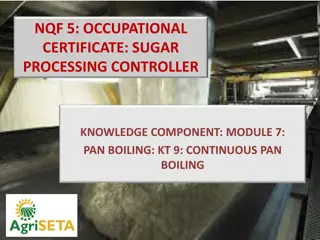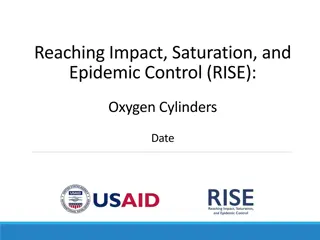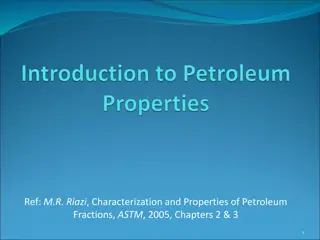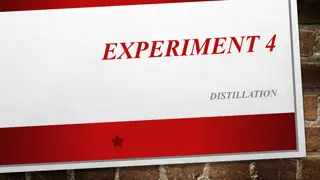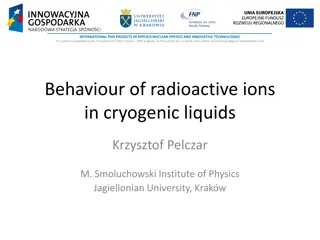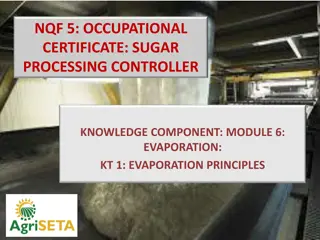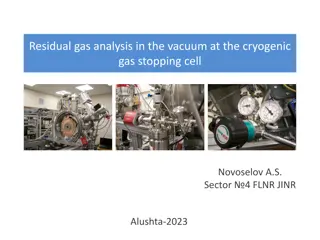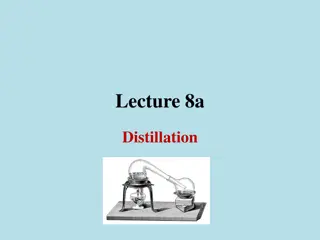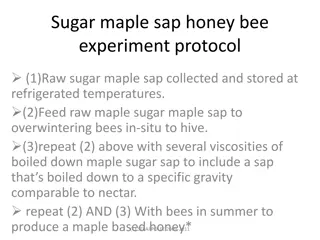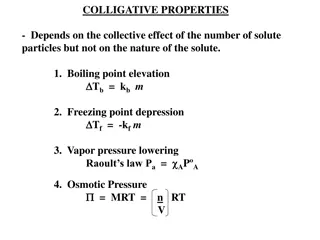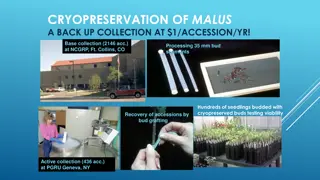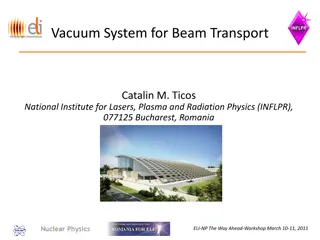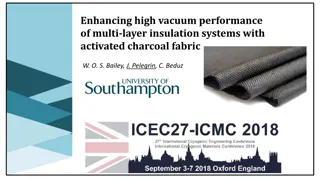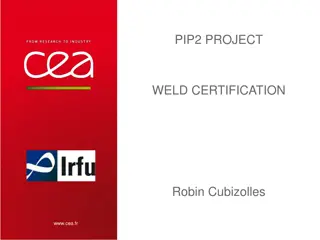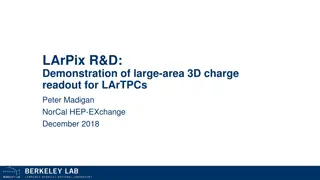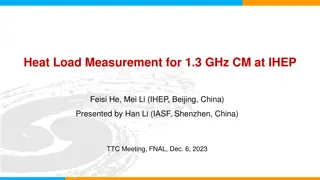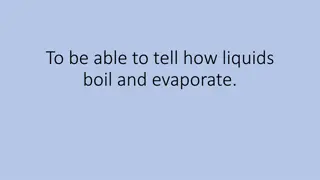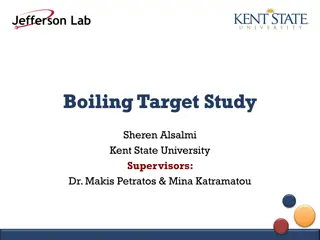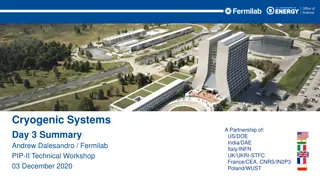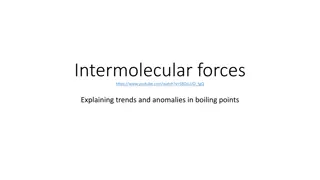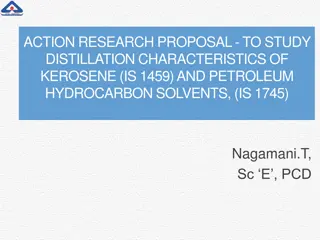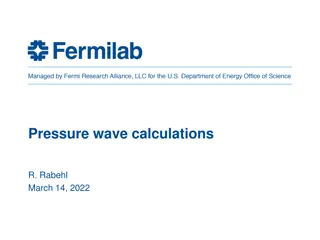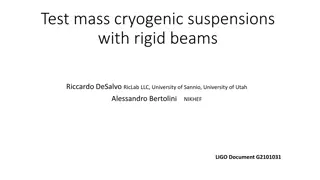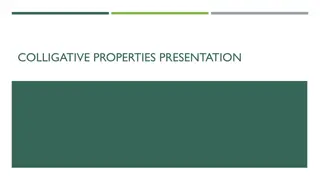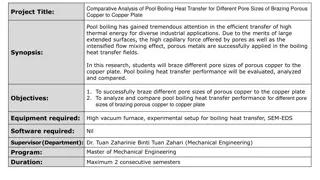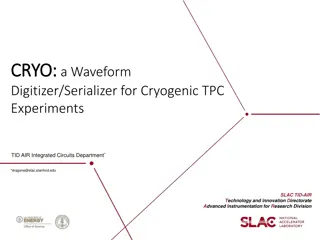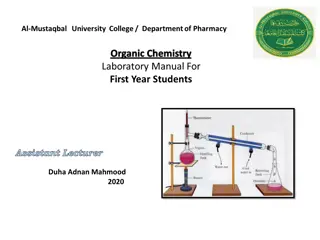Hydrogen Energy Storage Market
Hydrogen is produced through electrolysis of water and the gas is stored in medium or large sized containers according to the requirements. The gas can be converted into energy in combustion engine or in fuel cell. Usually, hydrogen energy is stored in three form; liquid, solid, and gaseous form. To
2 views • 6 slides
NASA Cryogenic Fluid Management Flight Demonstration Summary
NASA selected 14 companies, including small businesses, to develop technologies for sustainable operations on the Moon under the Artemis program. The Cryogenic Fluid Management Portfolio Project aims to close technology gaps essential for future space missions. This Technology Demonstration Mission
0 views • 10 slides
Understanding the 3-Massecuite Boiling System in Sugar Processing
The process of pan boiling in sugar processing involves multiple gradations of massecuite to ensure high sugar quality and recovery. By separating crystals from mother liquor and boiling in stages, the 3-massecuite system optimizes sugar production while minimizing losses. Quality sugar production f
11 views • 33 slides
Lessons Learned from EAM Logbooks for Cryogenic Operation at CERN
This presentation discusses the lessons learned from EAM-based Logbooks in managing cryogenic installations at CERN. It covers the importance of logbooks, historical perspectives, operational aspects, and the detailed views provided by logbook records.
7 views • 22 slides
SMuRF: SLAC Microresonator RF Readout
SMuRF group at SLAC developed a cutting-edge RF readout system for cryogenic micro-resonators used in research. The system features cold resonators tuned with TES current and a flux ramp to eliminate 1/f noise. Key technical challenges include noise, linearity, wide bandwidth, and computation power.
4 views • 16 slides
Cryogenic Sub-systems
Explore the relationship between liquefaction, refrigeration, and isothermal processes in accelerator systems. Understand the equivalent exergy in Watts for different gases at 1 bar and 300K. Calculate the reversible input power required for latent cooling and the total cooling in different scenario
1 views • 9 slides
Cryogenic Heated Tube Flow Boiling Experiments with Generalized Fluid System Simulation Program
Modeling of cryogenic heated tube flow boiling experiments of nitrogen and methane using the Generalized Fluid System Simulation Program. The research conducted by Michael Baldwin and co-authors from NASA MSFC, NASA GRC, and Purdue University explores the motivation, background, and findings related
0 views • 18 slides
Understanding Boiling Point Determination in Chemistry
Boiling point is the temperature at which a substance changes from a liquid to a gas phase, influenced by factors like molecular weight, polarity, branching, and impurities. This crucial property is used for substance identification and purity checks. The experimental process involves precise handli
1 views • 9 slides
Understanding Changes of State in Matter
Explore the three states of matter, the law of conservation of mass, and what happens to particles in an ice cube when placed in warm water. Discover the importance of melting point, boiling point, and how impurities affect these points. Dive into temperature-time graphs to identify melting and boil
0 views • 13 slides
Understanding Continuous Pan Boiling in Sugar Processing
Continuous pan boiling is a key process in sugar production, involving multiple compartments where massecuite is heated and circulated. This method ensures efficient crystallization and control of brix levels for optimal sugar quality. The design, operation, and control of continuous pans play a vit
0 views • 11 slides
Comprehensive Guide to Oxygen Storage and Handling Methods
Explore the various methods of storing and handling oxygen, including types of storage devices, sources of medical oxygen, liquid oxygen containers, and cryogenic liquid cylinders. Learn about the different containers used, storage quantities, vaporization rates, and safety measures involved in stor
0 views • 61 slides
Understanding Petroleum Fraction Distillation Curves
Characterization and properties of petroleum fractions are essential for understanding their behavior, particularly through distillation curves. These curves depict the boiling points of crude oil or petroleum fractions, highlighting components' volatility ranges. Various methods like ASTM D86, True
0 views • 28 slides
Overview of Distillation: Methods and Applications
Distillation is a crucial process for purifying liquid organic compounds by converting them to vapor and then back to liquid through condensation. This process is vital for various applications, including the separation of different liquids based on their boiling points. Distillation methods such as
0 views • 10 slides
Exploring Advanced Nuclear Physics and Technologies in International PhD Projects
Delve into cutting-edge research projects in applied nuclear physics and innovative technologies supported by the Foundation for Polish Science. Investigate the behavior of radioactive ions in cryogenic liquids and delve into physics beyond the Standard Model through experiments like double-beta dec
2 views • 11 slides
Status Update on GRANIT Spectrometer at Les Houches (August 19, 2024)
GRANIT aims to increase observation time of neutrons in gravitational states and enhance precision of measurements. Details about the clean room, UCNs hunting, and progress made in 2010 are outlined, emphasizing the need for system reliability and improvement. Significant steps have been taken towar
0 views • 34 slides
Review of Boiling Water Experiment - Analysis and Feedback
A detailed review of a boiling water experiment conducted in Greece, analyzing the presentation of theories, experiments, and results. The reporter's lack of theoretical basis and experimental details was highlighted, while the opponent raised insightful questions and corrections. Emphasis was place
3 views • 10 slides
Understanding Evaporation Principles in Sugar Processing
Evaporation plays a crucial role in sugar processing by removing water from solutions to concentrate sucrose. This process involves boiling liquor, vaporizing water through heat, and crystallizing sucrose. Learn about the boundary between evaporation and sugar boiling, quantity of water to be evapor
5 views • 38 slides
Cryogenic Gas Stopping Cell for High Precision Nuclear Physics Experiments
In the field of nuclear physics, high-quality ion beam parameters are essential for both primary and secondary beams. This report focuses on the cryogenic gas stopping cell, also known as a gas catcher, designed to transform rare ion beams from nuclear reactions into low-energy beams with small emit
1 views • 12 slides
Understanding Distillation: Methods and Factors Affecting Boiling Points
Distillation is a process used to separate liquids based on their boiling points, with methods like simple, fractional, vacuum, and steam distillation. The boiling point of a compound is influenced by factors such as molecular weight and functional groups, where higher weights and polar groups lead
1 views • 15 slides
Understanding Distillation: Boiling Points and Factors
Distillation is a process of vaporizing and condensing liquids to separate components based on boiling points. This method utilizes differences in boiling points of liquid mixtures to achieve separation. Factors influencing boiling points include molecular weight, functional groups, and intermolecul
0 views • 16 slides
Maple Sap Bee Experiment Protocol
This experiment explores the potential of honey bees to metabolize sugar maple sap and produce honey. By feeding bees raw and processed maple sap, researchers aim to investigate the effects on honey production. The hypothesis suggests that boiling maple sap may generate novel compounds that bees can
0 views • 14 slides
Understanding Colligative Properties in Solutions
Colligative properties in solutions depend on the total concentration of solute particles present, impacting properties such as boiling point elevation, freezing point depression, vapor pressure lowering, and osmotic pressure. Boiling point elevation is directly proportional to the number of solute
1 views • 19 slides
Innovative Cryopreservation Techniques and Fire Blight Management in Apple Collections
The provided content discusses cryopreservation techniques for Malus and Prunus collections, focusing on bud segments and injury management. Measures to minimize fire blight in the PGRU apple collection are highlighted, including cryogenic storage of buds and repropagation on specific rootstocks. A
0 views • 8 slides
Vacuum System Engineering for Beam Transport Challenges
Addressing engineering issues related to beam delivery in a vacuum environment for the ELI-NP project, focusing on maintaining low vacuum levels, reducing vibrations, cooling pumps, and ensuring stability with large beams. Solutions include segmented vacuum lines, cryogenic pumps, and integrated rem
0 views • 9 slides
Enhancing Vacuum Performance with Activated Charcoal Fabric in Multi-Layer Insulation Systems
Multi-layer insulation (MLI) systems play a crucial role in cryogenic applications, affecting vacuum quality and efficiency. This study explores the use of activated charcoal fabric (ACF) as a potential replacement for traditional spacer materials in MLI, enhancing cryopumping performance. By incorp
0 views • 16 slides
Certification and Standards in Pressure Equipment: Robin Cubizolles PIP2 Project
In the PIP2 Project led by Robin Cubizolles at CEA, certification and adherence to specific codes and standards are crucial for the design and manufacturing of pressure equipment. Directives such as the PED 2014/68/EU guide the design process, with standards like EN 13445 and EN 13458 ensuring compl
0 views • 15 slides
Advancements in Large-Area 3D Charge Readout for LArTPCs
Demonstrations featuring large-area 3D charge readout for Liquid Argon Time Projection Chambers (LArTPCs) were showcased by Peter Madigan at NorCal HEP-EXchange in December 2018. The challenges of readout in high-rate environments were discussed, along with the potential of pixelated TPCs in 3D LArT
0 views • 13 slides
Cryogenic Heat Load Measurement and Calibration at IHEP
Researchers at IHEP in Beijing, China, conducted heat load measurements for a 1.3 GHz Cryomodule, analyzing uncertainties in flow rate readings and calibrating mass flow rates. The study involved static and dynamic heat load measurements, utilizing various control interfaces and valves. Calibrations
0 views • 9 slides
Understanding Boiling and Evaporation of Liquids
Learn about the process of boiling and evaporation of liquids, including how liquids transform into gases, the role of temperature in these changes, examples of evaporation in daily life, and fun experiments to explore drying times. Discover the three states of matter and the significance of water v
0 views • 10 slides
Analysis of Boiling Target Study at Kent State University
Boiling Target Study conducted at Kent State University focused on analyzing the impact of beam current on target density fluctuations, termed as Boiling. The study involved applying various cuts, calculating live time, and extracting charge yield data to determine the presence of target boiling. Su
0 views • 12 slides
Cryogenic Systems Workshop Day 3 Highlights
During the Cryogenic Systems Workshop Day 3, speakers like Pawel Duda and Ram Dhuley discussed stress and flexibility criteria for bayonets and control valves. They explored topics such as thermal contraction effects, boundary conditions in structural analysis, and the importance of considering diff
0 views • 6 slides
Understanding Boiling Points and Intermolecular Forces
Exploring the relationship between intermolecular forces and boiling points, this content discusses trends and anomalies in boiling points of halogens, isomers with the same molecular formula, molecules with similar Mr, and polar molecules. It explains how molecular size, structure, and interactions
0 views • 5 slides
Study of Distillation Characteristics of Kerosene and Petroleum Solvents
This research proposal aims to investigate the distillation characteristics of Kerosene (IS 1459) and Petroleum Hydrocarbon Solvents (IS 1745) to differentiate between them. With overlapping boiling points, it is crucial to determine the 50% and 95% volume recovery temperatures in both standards to
0 views • 11 slides
Pressure Wave Calculations in Cryogenic Systems
Presentation on pressure wave calculations by R. Rabehl regarding potential differential longitudinal pressure issues in cryogenic systems, specifically related to changing valve positions and their impact on cold masses. The calculations involve dynamic pressure surges using water hammer calculatio
0 views • 6 slides
Understanding Mechanical Quality Factor of Cryogenic Silicon
This presentation explores the Mechanical Quality Factor of Cryogenic Silicon, detailing its significance in improving LIGO detectors by minimizing thermal elastic noise. The Fluctuation-Dissipation Theorem is discussed, showing how it relates noise spectrum to linear system responses. Methods for m
0 views • 18 slides
Innovative Solutions for Cryogenic Suspensions Using Compressive Flexure Beams
Test mass cryogenic suspensions with rigid beams pose conflicting requirements, such as thermal noise reduction and vibration attenuation. This study explores the use of compressive flexure beams as a solution to achieve flexibility without sacrificing thermal conductance. Compressional mode flexure
0 views • 13 slides
Understanding Colligative Properties in Chemistry
Colligative properties in chemistry depend on the amount and type of solute particles added to a sample, as well as the intermolecular forces at play. They include vapor pressure, boiling point elevation, and freezing point depression. Vapor pressure is the pressure exerted by a vapor on its surroun
0 views • 7 slides
Comparative Analysis of Pool Boiling Heat Transfer for Different Pore Sizes
Pool boiling heat transfer using porous metals is crucial for various industrial applications. This project involves brazing porous copper of various pore sizes to a copper plate, analyzing and comparing their heat transfer performance. Another related project focuses on simulating the joining of di
0 views • 4 slides
SLAC CRYO: Waveform Digitizer/Serializer for Cryogenic TPC Experiments
SLAC is developing the CRYO ASIC, a high-performance waveform digitizer and serializer optimized for cryogenic operation in experiments like DUNE. The CRYO ASIC offers advanced features such as single-chip integration, programmability, on-chip regulation, and design for reliability. Operating in a 1
0 views • 23 slides
Understanding Distillation in Chemistry: Purification and Separation Methods
Distillation is a crucial process in chemistry for purifying organic compounds by selective evaporation and condensation. It involves the separation of substances based on their boiling points, resulting in either nearly pure components or increased concentrations of specific compounds in a mixture.
0 views • 14 slides
